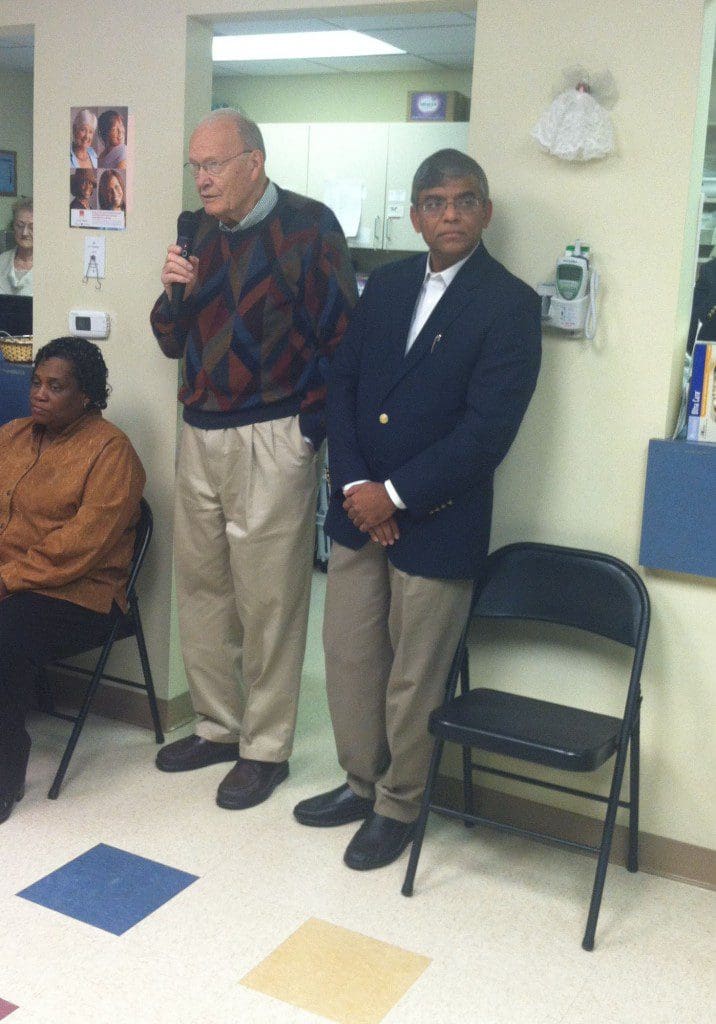Les Stobbe is well known and respected in the Christian book publishing industry. Representing bestsellers to first-time authors, Les knows what it takes to select authors, develop platforms and teach writers how to make their work shine.
Ambassador International is thrilled to have had Les present works to them for consideration for several years now, some of which include Dr. Kayshap Patel, From Raindrops to an Ocean, Grace Fabian, Outrageous Grace, and Paulette George, Good Morning Beautiful.
Although we don’t require a literary agent in order for an author to submit a manuscript to Ambassador, we often get questions about the publishing process and the role of a literary agent. So I asked Les to share some some of his expert insight.
Tim: How did you become a literary agent?
Les: You’ve heard the saying that “When life gives you a lemon, turn it into lemonade.” I had been with Here’s Life Publishers for 11 years, seven as president when we were sold to Thomas Nelson. So when several writer friends approached me at a conference and asked me to represent them, I agreed. I first represented their books with editors at the 1993 CBA Convention—at which I also interviewed for a position as managing editor of the curriculum division of Scripture Press. For 11 years I worked only part-time as literary agent, though I presented a significant list of book projects to editors at every CBA Convention and at other times of the year.
Tim: What are some of the most notable changes in the industry you’ve seen over the years?
Les: I recently wrote my website’s home page article on this topic. The most notable change is how books are sold and what that has meant for authors. From 1970, when I got into publishing, until the 1990s, we marketed principally to booksellers and bookstore chains. We considered ourselves the marketers. Gradually the number of bookstores declined and more and more books were moved through distributors. The impersonal nature of that process put the major burden of promoting their books on the author, most of whom had no marketing experience. So when their books did not sell, publishers switched to mostly publishing authors with recognizable names nationwide. That left most first book authors out in the cold—and at the mercy of self-publishing entities. The result has been a lot of books unsold in people’s garages. The e-book revolution is changing that—e-books do not clog garages, while POD (Print on Demand) means there is no inventory at the publisher and authors buy only what they are selling.
Tim: How do you find your writers?
Les: I can honestly say writers are sent to me by God. His instruments may be recommendation by one of my clients or a book editor, a listing of agents, attendance at a Christian writers’ conference, where I interact with writers to help them get published. Occasionally someone stumbles onto my website, www.stobbeliterary.com. God impressed on me that my ministry focus was first book authors, though occasionally a multi-published author is sent to me by God.
Tim: What do you look for in a first-time writer?
Les: I have to wear the hat of an editor. In fiction I look for first rate writers who have studied the craft and sharpened their skills by taking distance learning courses, attending Christian writers’ conferences, participating in critique groups. The competition is incredibly fierce for the few open fiction slots in all of Christian publishing. In non-fiction I look for uniqueness in idea and approach, though, like editors I look at what the author’s platform is, what she or he does on social media to build a national reputation. Only too often I still get the message, “Not visible enough.”
Tim: How do you know when the manuscript is ready?
Les: Experience. I began evaluating manuscripts for Kenneth N. Taylor of Living Bible fame in 1961 and became editor of Moody Press in 1970. Just like an experienced coach knows when a player is ready for prime time, I can tell in a page or two whether the writing will make it in today’s market. Then I have to factor in whether they have a national platform or are on social media. I use an experienced fiction reader to help me evaluate novels. I love stories and I too easily get immersed in a plot, failing to notice the absence of technical aspects expected from today’s novels.
Tim: What do you love most about your job?
Les: I love helping writers improve their writing and their presentation. That’s why I participate in eight or nine Christian writers conferences each year—and try to help writers improve proposals far oftener than I ought to. It keeps me at my desk when men my age are playing golf or fishing.
Tim: Anything else you’d like to add?
Les: My greatest satisfaction is seeing writers I helped get started getting book contract after book contract—and honoring Jesus Christ as they do so. Recently a client stumbled onto my name on page 81 of a book by a bestselling author who claimed I taught him to write. I well remember my meetings with him!






